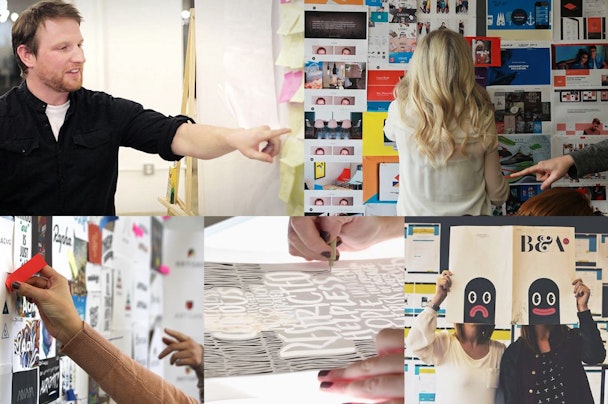Why small agencies should stay small
In the 1980s, legendary alt-rock group the Minutemen coined the term “jamming econo,” which meant living within your means to maintain your freedom. In that specific context, the group was spurning the idea of a climbing the ladder of corporate rock to play arenas and receive multi-million promotional budgets.

Credit: 20nine
The notion of jamming econo isn’t confined to the music world. Anchor Steam, a San Francisco-based brewer, faced a conundrum in the early 1990s when demand outpaced supply. To get to the next level, an IPO seemed like a good idea, but the company opted to pull back instead. As CEO Fritz Maytag later said, “big is not always better. Small companies can still knock ‘em dead.”
While staying small makes a lot of sense if you want to maintain control over your company and continue doing your best work, it’s still a countercultural idea. It shouldn’t be. Here’s why.
Teamwork
It’s no secret that in large teams, some people contribute more than others. There’s a term for this phenomenon: social loafing. That’s the tendency for some to hang back when working as part of a team. The smaller the team is, the less likely that will occur.
This is human nature. You don’t have to be Karl Marx to know that when you are less involved with the outcome of a project that you’re also less likely to contribute fully. In a small team, each member grows and learns more. Role boundaries are often blurred in small teams, forcing everyone to step up and try on a different role to keep the place running smoothly. (This is why it’s good advice for someone starting out to work at a small business where they can get more hands-on experience than at a large corporation.)
This work style doesn’t appeal to everyone though, which is a benefit in its own right: it helps weed out the people who aren’t bought into your culture. On the other hand, people on smaller teams know how valued they are because they can see how their skills contribute to the work being done. Their voices are heard and they don’t typically feel like an anonymous cog in a big faceless machine. There’s empowerment in that.
Agility
The most prized attribute in corporate America right now is agility. Even the largest conglomerates realize they have to have an agile culture to compete with well-funded disruptors. You can’t be nimble when you’re bloated, though. This especially applies to creative agencies where the ability to work nimbly is essential to creating innovative things quickly. “Nimble”, “agile”, and “innovative” are such overused buzzwords they can be nausea-inducing; despite being beaten to death, they do ring true in a creative environment with deadlines and expectations of excellence.
Culture
At a big company, culture is often dictated which can make it feel forced, disingenuous, or both. On smaller teams, each employee helps shape the culture of the company. Feeling this type of investment and ownership has been proven to improve employee satisfaction, loyalty, and retention.
Lack of Outside Influence
The biggest common denominator among rock bands, creative agencies and brewers that intentionally stay small is that they are all wary of outside influence. If you want to grow, that usually means you have to take funding. That means there will be pressure to either grow like mad or sell the company.
Either way is a trap. If you opt for fast growth, then you will inevitably have to bring in new talent and that talent will not only change your culture but (because they’re expensive) put more pressure on your firm to make ever-more revenues.
Don’t get me wrong. There are companies that manage to navigate this trajectory. The smart ones know how to maintain iron-fisted control over their companies and have the backbone to tell investors to back off when need be. Most companies don’t manage this phase well though and they wind up feeling like employees again and working for a boss, which was the reason that they started their own companies in the first place.
Rather than fall into that trap, consider doing what I’m doing. Stay small. Do what you love. And most of all, jam econo.
Greg Ricciardi is president and CEO of Philadelphia-based creative brand agency 20nine

